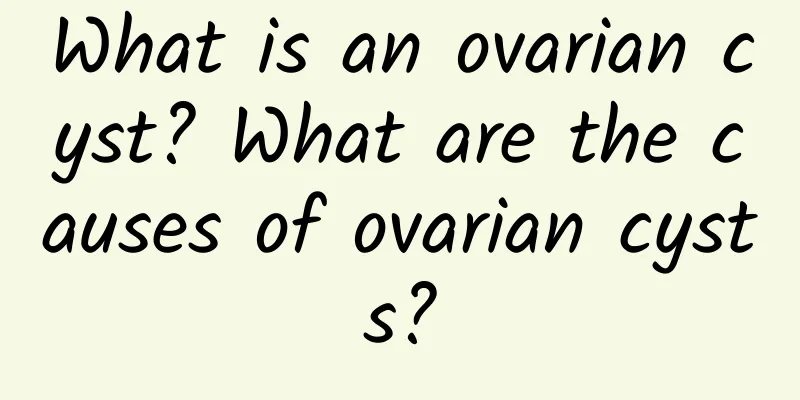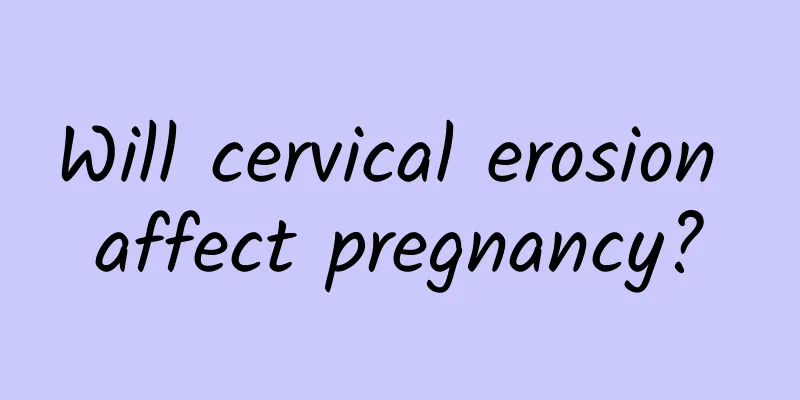What is an ovarian cyst? What are the causes of ovarian cysts?

|
What exactly is an ovarian cyst? What are the causes of ovarian cysts? The appearance of ovarian cysts may be related to endocrine disorders, insufficient secretion of luteinizing hormone, and damage to ovulation. This is just an inaccurate answer. Under normal circumstances, the ovaries are solid tissues. In women with ovulation cycles, a small amount of fluid will gather during the growth of the eggs every month, forming the so-called follicles. In theory, the follicles can reach their largest state during the ovulation period. Once B-ultrasound finds that there is too much fluid in the ovaries, we can call it an ovarian cyst. Generally speaking, ovarian cysts are divided into physiological and pathological types. It is generally recommended to go to the hospital for examination 3-7 days after the menstruation is over. It should be noted that ovarian cysts can cause rupture of ovarian cysts, endanger life, premature aging of women's faces, miscarriage, and difficult labor, which are all hazards caused by ovarian cysts. Causes of ovarian cysts include: 1. Abnormal development of oocytes The egg cell is a cell that contains only half of the human chromosomes, that is, 23 chromosomes. If it develops and proliferates abnormally, it will form ovarian cysts and cause certain damage to the body. 2. Endometriosis If endometriosis occurs in the ovaries, the lesions can invade the ovarian tissue and cause cysts, causing adverse effects on women's health. If not treated in time, it may even lead to infertility and other diseases. 3. The egg cell is not released If the follicle in the ovary does not rupture, the egg cell cannot be released normally. Under this abnormal circumstance, the follicle will grow larger and larger, forming an ovarian cyst. 4. Abnormal development of cells surrounding the egg Ovarian cysts may also form if various cells that are closely adjacent to the egg cells spontaneously develop and grow abnormally. If such diseases are not treated in time, they are likely to become cancerous. |
<<: What to do if there is pelvic fluid accumulation after egg retrieval
>>: How to completely treat ovarian cysts
Recommend
Seventy percent of uterine fibroid patients are under 30 years old. Uterine fibroids favor young unmarried women.
Seventy percent of uterine fibroid patients are u...
Brief analysis of typical symptoms of atrophic vulvar leukoplakia at different stages
It is very necessary for female friends to unders...
What are the main symptoms of atrophic vulvar leukoplakia? Women should know
I think there should be quite a few women who hav...
The commonly used treatment for pelvic inflammatory disease is ointment therapy
As pelvic inflammatory disease becomes more and m...
What to do if you suffer from cervical hypertrophy?
Cervical hypertrophy is the most common problem f...
What shampoo can be used for uterine fibroids? What skin care products are suitable for uterine fibroids?
Uterine fibroids are a common benign tumor in wom...
What is the difference between premature ovarian failure and polycystic ovary
What is the difference between premature ovarian ...
3 symptomatic medicated diets for patients with pelvic inflammatory disease
Pelvic inflammatory disease is a common gynecolog...
Relief of dysmenorrhea helps women control the progression of the disease
Dysmenorrhea is a very common phenomenon in women...
Are fruit seeds more nutritious? 6 Fruit Seeds That Can Cause Poisoning
When making fruit and vegetable juice, do you pee...
How to treat pelvic inflammatory disease during lactation
How to treat pelvic inflammatory disease during l...
15-year-old girl's belly is bulging and covered with "stretch marks", and her mother is horrified after the CT scan
A few months ago, an anxious couple brought their...
What should I pay attention to during the second trimester of ovarian failure?
What should you pay attention to during mid-pregn...
Women near menopause can try expectant treatment for uterine fibroids
Usually women need to find the right treatment fo...
How to use medication correctly for patients with pelvic inflammatory disease
How do patients with pelvic inflammatory disease ...









